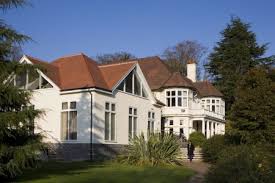
August 1, 2017, by Jake Hodder
2nd Annual Advisory Board Meeting, July 2017
At the start of July we had the second meeting of our Advisory Board. Similar to our previous get together at the end of our first year, we invited our UK-based Board members to join us in Nottingham for a two-day meeting, divided into four sessions, in order to discuss the progress we had made on the grant, and help shape our plans moving forward. The opening and closing sessions were led by the project team, the first session reflected on the progress made over the past twelve months, whereas the forward-looking final session was a more pragmatic discussion around carrying out and communicating research in the year ahead. Session II and III were led by members of the Board, who introduced pre-circulated papers and discussed themes from their own research which intersected with the project.
Myself, Steve and Mike, each reported on our research in various archives (much of it reported in this blog). I discussed my recent two and half month visit to the United States retracing the histories of the interwar Pan-African Congresses, Steve discussed his work in India and London investigating the sessions of the Round Table Conference and Mike recounted archive trips in the UK, France and Italy exploring the International Committee on Intellectual Cooperation, an advisory body to the League of Nations.
Each of us reflected on some of the challenges encountered so far, such as the difficulty in reconstructing the tastes, sounds and smells of the past (see our sensory history blog) or managing the archival bias towards preserving elite voices in a way which replicates some of the power-structures of the conferences themselves. We discussed our attempts to read against the archival grain in order to locate what Madeleine Herren calls the ‘subaltern diplomat’ – the lower-ranking typists, translators, secretaries, etc who played an often hidden role running events, and who may offer an alternative tradition of diplomacy which is less Western, elite, or male. Whilst we were all able to identify such figures, we reflected on the challenges of giving them fuller accounts based on archival limitations. Also, given that two of our conferences are engaging with non-Western subjects, we reflected on the challenge that a category like subaltern diplomacy poses when layered between intersecting lines of class, race, and gender (a central theme at our upcoming sessions at the Royal Geographical Society conference in August).
In the middle sessions, the historian Daniel Laqua (Northumbria) discussed an upcoming edited book proposal on the Union of International Associations; the cultural historian James Mansell (Nottingham) discussed his recent work at the Science Museum, London exploring the history of a 1935 exhibition on Noise Abatement; geographer Fiona McConnell (Oxford) discussed her recent work at the United Nations with the the Unrepresented Nations and Peoples Organization (UNPO); and the International Relations scholar Robbie Shilliam (Queen Mary, London) spoke on black deficit in the British academy.
In the final session we looked ahead, detailing our plans over the coming year. We discussed some of the work we had done building connections with local community leaders and schools, and our plans to enhance and deepen these links in the year ahead (including, for example, working with local children during Black History Month). We also discussed the framework for our three upcoming workshops and the early preparations for our ‘international conference on international conferencing’ to be held at the Royal Geographical Society in December 2018, to be organised alongside several publications including a co-edited book.
The four sessions were hugely productive. Each garnered frank and stimulating discussion (which continued into the breaks and evening), and provided a perfect balance between the Board’s twin tasks of providing practical guidance on various specific aspects of the project (such as impact and dissemination plans, organising of workshops, etc), alongside a broader intellectual steering role involving bigger thematic and conceptual considerations. In both of these aspects, the Board’s international and interdisciplinary character has been invaluable and we look forward to further collaborations and discussions in the future.
No comments yet, fill out a comment to be the first

Leave a Reply